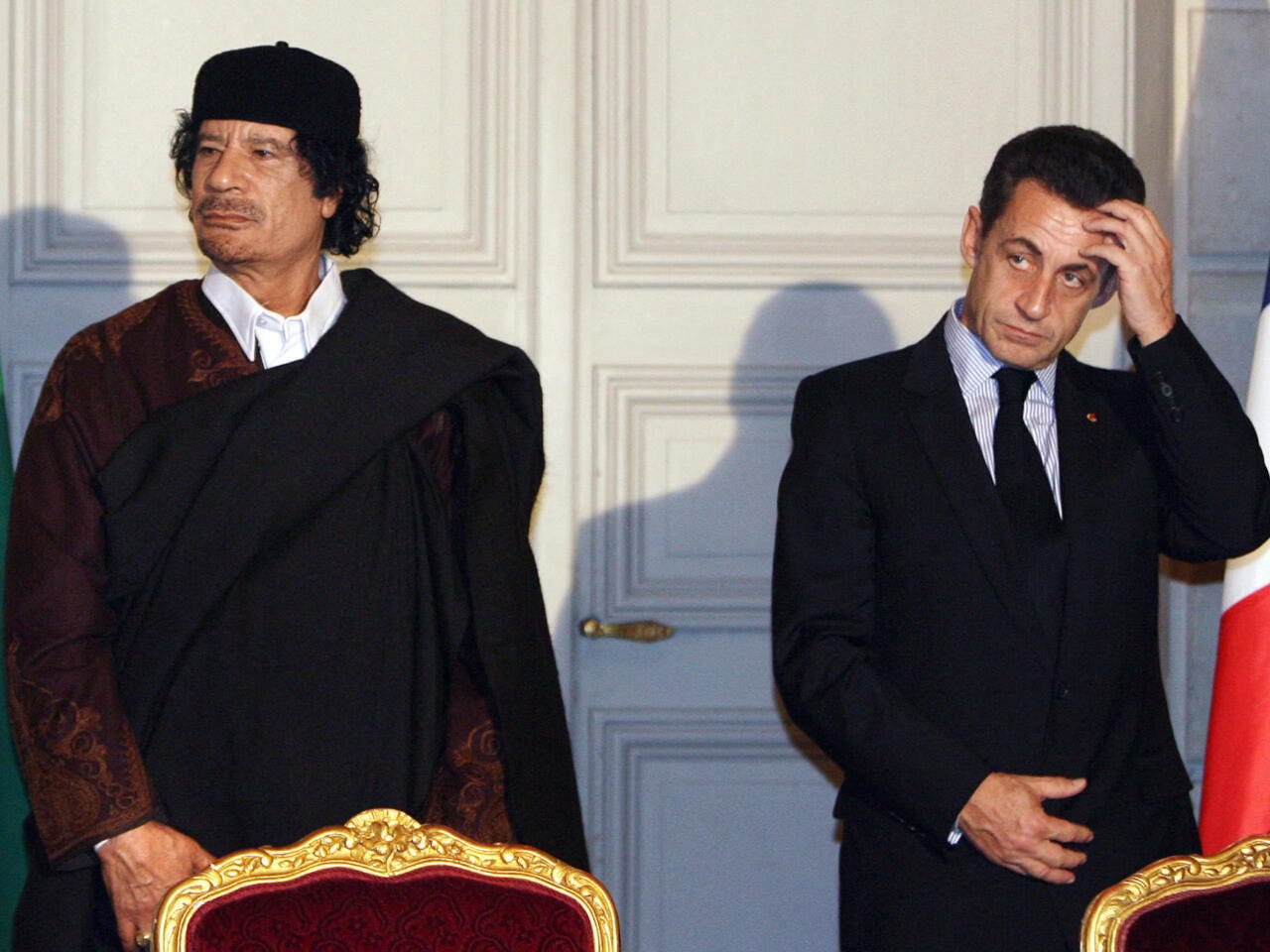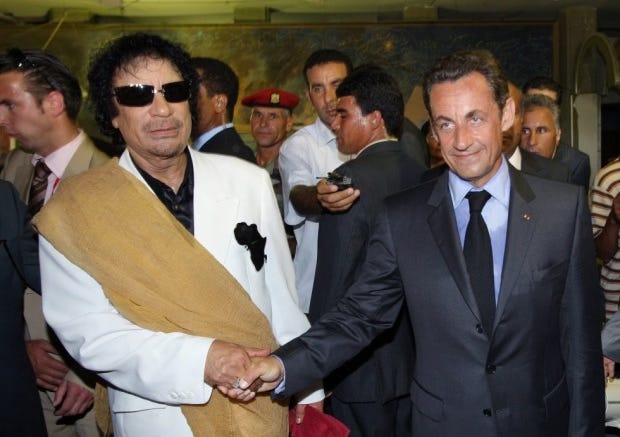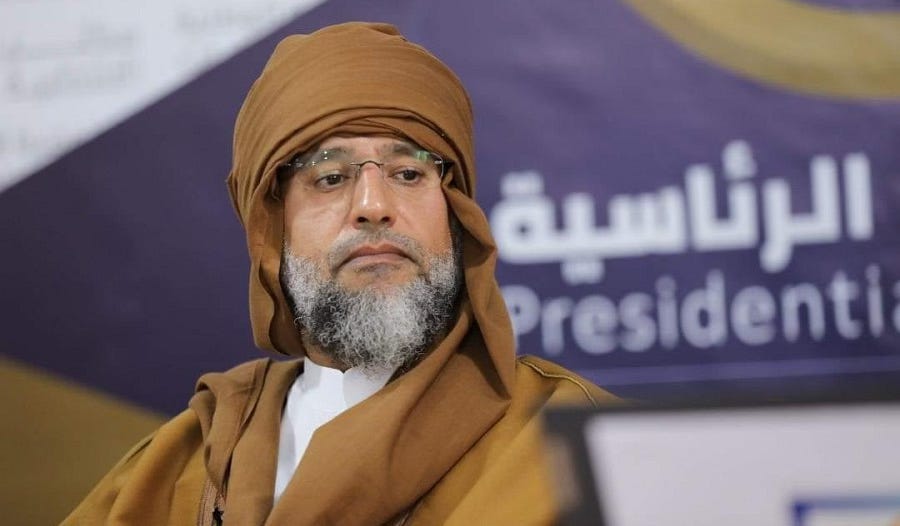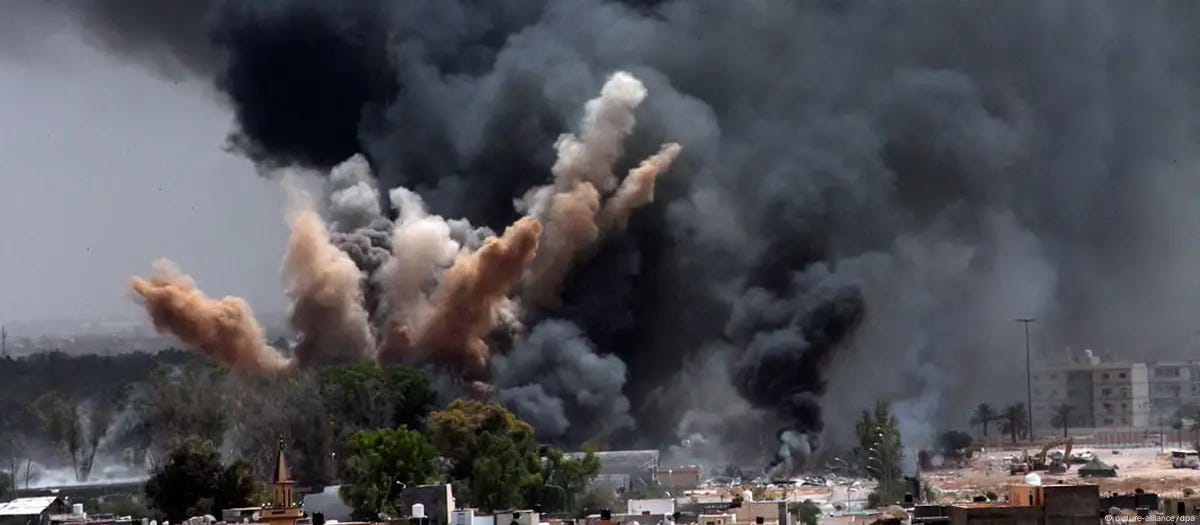7 Years in Prison for €7 Million: Sarkozy’s Fatal Deal with Kaddhafi
The High Price of Dirty Money: How Kaddhafi's Cash Caught Up with Sarkozy
The scandal that refuses to die is back in the headlines, and this time, the stakes are higher than ever. French prosecutors have demanded 7 years in prison for former President Nicolas Sarkozy, accused of receiving €7 million from the late Libyan leader Muammar Kaddhafi to finance his 2007 presidential campaign.
Sarkozy, once seen as the untouchable leader of France, now finds himself entangled in a web of corruption and betrayal. Even more striking is that he’s already wearing an electronic bracelet after being convicted in another corruption case—the "wiretapping affair"—where he was found guilty of influence peddling and corruption in 2021. The court sentenced him to 3 years in prison, including 1 year to be served at home under electronic surveillance.
This isn’t just an old ghost coming back to haunt him—Sarkozy is already a convicted criminal fighting for his freedom.

Official Libyan Statements: From Accusation to Retaliation
Saif al-Islam Kaddhafi’s Accusation: Sarkozy Took Libyan Money
The first bombshell came from Saif al-Islam Kaddhafi, son of Muammar Kaddhafi, who publicly declared in 2011 that Sarkozy took Libyan money to finance his campaign. In a televised interview on Euronews, Saif al-Islam stated:
"Sarkozy must first give back the money he took from Libya to finance his electoral campaign. We funded it. We have all the details, the bank documents, the transfer operations, and we are ready to reveal everything."
(Source: Euronews, March 16, 2011)
The statement hit like a grenade—blowing apart Sarkozy’s carefully crafted public image. Suddenly, the world wanted answers.
Abdallah Senoussi’s Testimony: The Intelligence Chief Speaks
Not long after, Abdallah Senoussi, Kaddhafi’s trusted intelligence chief, piled on the pressure. During an interrogation in 2012, Senoussi confirmed that millions of euros were transferred to Sarkozy’s campaign, authorized personally by Kaddhafi:
"We financed Sarkozy’s campaign in 2007. We have all the evidence—bank accounts, documents, and transfers."
(Source: Le Monde, March 20, 2012)
This wasn’t just smoke—this was a blazing fire. Backing up Saif al-Islam’s claims, Senoussi’s statement shattered any remaining doubts.
The Bombing of Senoussi’s House: A Targeted Message?
In 2011, amid the NATO intervention in Libya, French forces bombed Senoussi’s house in Tripoli, allegedly targeting one of Kaddhafi’s top aides. The official narrative claimed it was a strategic strike. But eyewitnesses reported that Senoussi’s house was not a military installation, but rather a civilian residence.
Was this really about taking out a threat? Or was it about eliminating a crucial witness who knew too much? Critics of Sarkozy’s foreign policy claim that this attack was a deliberate attempt to silence anyone with knowledge of the secret funding network.
Why Was France So Eager to Attack Libya?
Let’s be honest. Was it really about humanitarian intervention and protecting civilians? Or was it about covering up dirty secrets before they surfaced?
Even Donald Trump once hinted at the hypocrisy of the intervention, suggesting that France’s real motive was not humanitarian but strategic, aiming to protect Sarkozy from being exposed by Kaddhafi.
Mediapart: The Journalistic Bombshell
Credit where credit’s due—this whole scandal would have stayed buried if not for the relentless work of Fabrice Arfi and Karl Laske from Mediapart. In 2012, they exposed a confidential Libyan document revealing that Kaddhafi’s regime agreed to support Sarkozy’s campaign with €50 million. It was a revelation that tore the mask off France’s political class.
This is why investigative journalism matters. It’s not just about digging up dirt—it’s about holding the powerful accountable. Without fearless reporting, the truth would have stayed locked away in the shadows.
Sarkozy’s Defense: A Political Witch Hunt?
Throughout the investigation, Sarkozy has claimed it’s all just "grotesque lies" and "politically motivated attacks" by his enemies. He insists the accusations are based on unreliable testimonies and forged documents.
But here’s the problem: this scandal is not an isolated event. Already convicted of corruption and influence peddling, Sarkozy is battling to avoid more disgrace and a return to prison.
From President to Prison: A Fallen Legacy
If convicted, Sarkozy would face 7 years behind bars, a stunning downfall for a former French president. This scandal not only tarnishes his legacy but raises serious questions about France’s foreign policy decisions and the real motives behind the Libyan intervention.
Was the French intervention really about protecting civilians, or was it a covert mission to erase damaging secrets? One thing’s for sure: Sarkozy’s fall from grace has exposed just how intertwined politics and power can be—and why journalism must remain fearless.

The World Needs Investigative Journalism More Than Ever
In a world dominated by political lies and manipulation, investigative journalism is more crucial than ever. It’s not just a profession—it’s a duty to the public. Without fearless reporters digging for the truth, corruption would thrive in the shadows.
The Sarkozy-Kaddhafi scandal is proof that powerful leaders will do anything to protect their secrets. Only through relentless investigation did this story come to light, reminding us why the world needs brave journalists who aren’t afraid to challenge power.







A Beautiful Article Linking Libya’s Turmoil to Gaddafi’s Funding of Sarkozy’s Campaign – and the Vital Role of Investigative Journalism
Based on his profession as a lawyer who brokers defense files, he has become accustomed to this type of manipulation. The fate of anyone who deviates from seriousness and conviction is unknown.